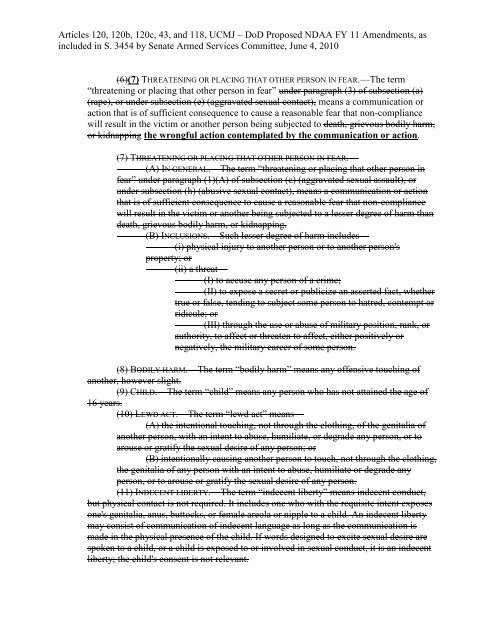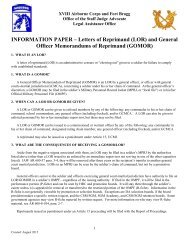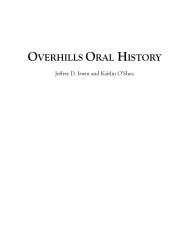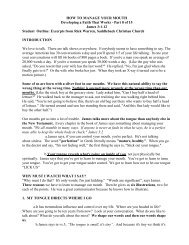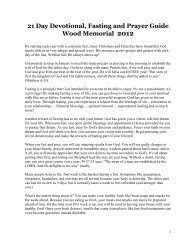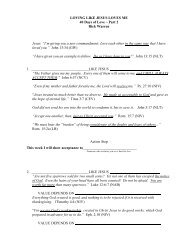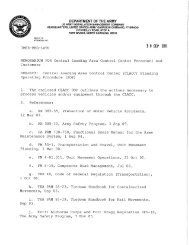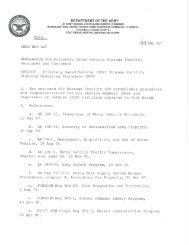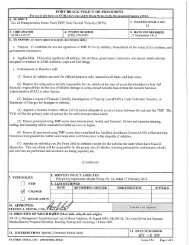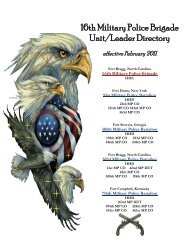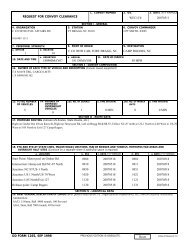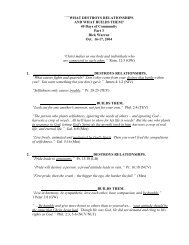Articles 120, 120b, 120c, 43, and 118, UCMJ – DoD Proposed ...
Articles 120, 120b, 120c, 43, and 118, UCMJ – DoD Proposed ...
Articles 120, 120b, 120c, 43, and 118, UCMJ – DoD Proposed ...
You also want an ePaper? Increase the reach of your titles
YUMPU automatically turns print PDFs into web optimized ePapers that Google loves.
<strong>Articles</strong> <strong>120</strong>, <strong>120</strong>b, <strong>120</strong>c, <strong>43</strong>, <strong>and</strong> <strong>118</strong>, <strong>UCMJ</strong> <strong>–</strong> <strong>DoD</strong> <strong>Proposed</strong> NDAA FY 11 Amendments, as<br />
included in S. 3454 by Senate Armed Services Committee, June 4, 2010<br />
(6)(7) THREATENING OR PLACING THAT OTHER PERSON IN FEAR.—The term<br />
―threatening or placing that other person in fear‖ under paragraph (3) of subsection (a)<br />
(rape), or under subsection (e) (aggravated sexual contact), means a communication or<br />
action that is of sufficient consequence to cause a reasonable fear that non-compliance<br />
will result in the victim or another person being subjected to death, grievous bodily harm,<br />
or kidnapping the wrongful action contemplated by the communication or action.<br />
(7) THREATENING OR PLACING THAT OTHER PERSON IN FEAR.—<br />
(A) IN GENERAL.—The term ―threatening or placing that other person in<br />
fear‖ under paragraph (1)(A) of subsection (c) (aggravated sexual assault), or<br />
under subsection (h) (abusive sexual contact), means a communication or action<br />
that is of sufficient consequence to cause a reasonable fear that non-compliance<br />
will result in the victim or another being subjected to a lesser degree of harm than<br />
death, grievous bodily harm, or kidnapping.<br />
(B) INCLUSIONS.—Such lesser degree of harm includes—<br />
(i) physical injury to another person or to another person's<br />
property; or<br />
(ii) a threat—<br />
(I) to accuse any person of a crime;<br />
(II) to expose a secret or publicize an asserted fact, whether<br />
true or false, tending to subject some person to hatred, contempt or<br />
ridicule; or<br />
(III) through the use or abuse of military position, rank, or<br />
authority, to affect or threaten to affect, either positively or<br />
negatively, the military career of some person.<br />
(8) BODILY HARM.—The term ―bodily harm‖ means any offensive touching of<br />
another, however slight.<br />
(9) CHILD.—The term ―child‖ means any person who has not attained the age of<br />
16 years.<br />
(10) LEWD ACT.—The term ―lewd act‖ means—<br />
(A) the intentional touching, not through the clothing, of the genitalia of<br />
another person, with an intent to abuse, humiliate, or degrade any person, or to<br />
arouse or gratify the sexual desire of any person; or<br />
(B) intentionally causing another person to touch, not through the clothing,<br />
the genitalia of any person with an intent to abuse, humiliate or degrade any<br />
person, or to arouse or gratify the sexual desire of any person.<br />
(11) INDECENT LIBERTY.—The term ―indecent liberty‖ means indecent conduct,<br />
but physical contact is not required. It includes one who with the requisite intent exposes<br />
one's genitalia, anus, buttocks, or female areola or nipple to a child. An indecent liberty<br />
may consist of communication of indecent language as long as the communication is<br />
made in the physical presence of the child. If words designed to excite sexual desire are<br />
spoken to a child, or a child is exposed to or involved in sexual conduct, it is an indecent<br />
liberty; the child's consent is not relevant.


